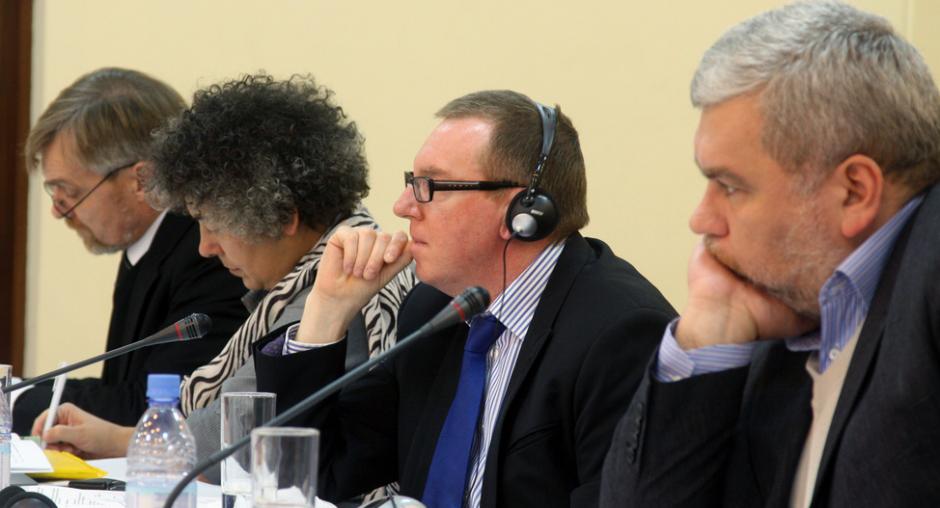Human rights developments in light of 20 years of independence discussed at OSCE-supported conference in Kazakhstan

ASTANA, 12 December 2011 - Representatives from non-governmental organizations, the National Human Rights Commission, academia, international organizations and embassies reviewed the progress achieved during 20 years of Kazakhstan’s independence, and challenges in promoting human rights and fundamental freedoms at an expert conference held today in Astana.
More than 70 participants from the capital and Kazakhstan’s regions analyzed the implementation of human rights protection policies, challenges in the fulfillment of relevant commitments, and the efficacy of national human rights protection mechanisms. They reviewed the country’s experience in such areas as freedom of speech, freedom of religion and belief, freedom of peaceful assembly, freedom from torture, the right to a fair trial, tolerance and non-discrimination. International experts from Poland, Russia and Spain also attended the conference and shared their experience.
"The OSCE Centre supports Kazakhstan in promoting human rights and strengthening democratic institutions in line with OSCE principles and commitments,” said Jeannette Kloetzer, the Acting Head of the OSCE Centre in Astana. “Dialogue and interaction between the authorities and the civil society is of vital importance to address challenges and achieve further progress. This is especially relevant now, at the final stage of the implementation of the 2009-2012 National Action Plan on Human Rights.”
Nazgul Ergalieva, Executive Director of the Legal Policy Research Centre, said: ”Today’s conference provides a forum for constructive dialogue on what is needed to further promote the protection of human rights. In Kazakhstan, the main challenge is the remaining gap between the law and the practice. This conference aims to issue practical recommendations on how to bridge the gap and improve human rights practice.”
As a result of the discussions a set of recommendations for lawmaking bodies, law enforcement agencies, and institutions working to protect human rights were developed.
The conference was organized by the OSCE Centre in Astana, the EU Delegation, the Legal Policy Research Centre, the UN High Commissioner for Human Rights in Central Asia, Kazakhstan’s International Bureau for Human Rights and Rule of Law, the MediaNet International Centre for Journalism, and the Norwegian Helsinki Committee.
